While teeth are always in the spotlight, a lot of people ignore the gums. But your gums are also incredibly important. Without proper gingival care, your gums can easily become inflamed and diseased which not only affects your mouth but in later stages can also impact your general health and wellbeing.
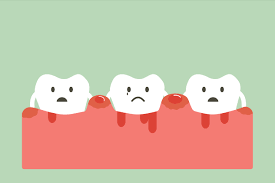
The Usual Suspects: Gum Disease
When you don’t take care of your gums, you risk contracting gum disease: gingivitis (in its mild form) and periodontitis (in its advanced/aggressive form).
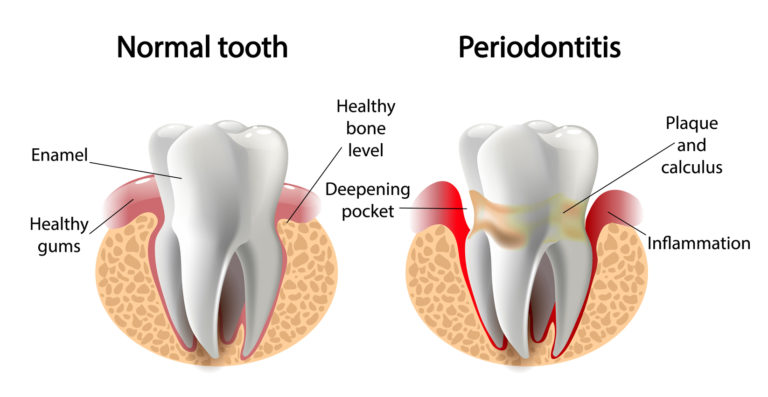
“Perio” means relating to the gums and the “itis” suffix refers to inflammation. Gum disease or gum inflammation is actually quite common, particularly in its earlier stage: gingivitis, caused by plaque build-up at the gingival margin (i.e. where the gum joins the tooth). When the plaque continues to build up, the bacteria start rapidly multiplying causing harmful by-products that trigger your body’s immune system.
Inflammation of the gums is your body’s defence mechanism against the bacteria. If this is left untreated, over time the bacteria’s harmful by-products will turn into chronic infection that will eat away at the structures joining teeth to gums and it will also destroy the bone around teeth.
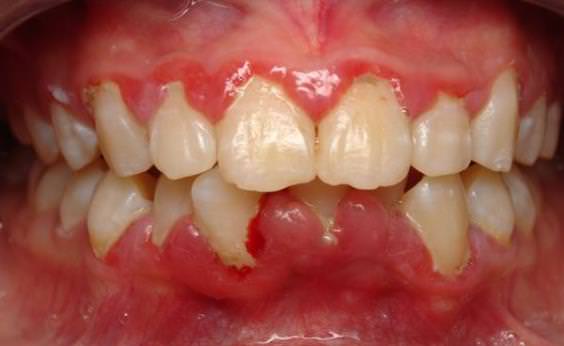
So What Do You Do?
1. Ye Old Faithfuls: Brushing and Flossing
As you are probably aware, it’s recommended that you brush your teeth at least twice a day and floss at least once a day. However, if not done properly, brushing and flossing can potentially damage your gums. So to avoid any damage, here are some brushing and flossing tips below.
Brushing
You should brush from the back to the front of your mouth. Place the toothbrush bristle at the gum line on a 45° angle and brush gently in a circular motion with manual toothbrushes.

If you’re using an electric toothbrush, make sure you allow the toothbrush to brush every surface of a tooth for one to two seconds each before moving on to the next tooth. You should spit out the toothpaste once you have finished brushing.
Use a soft-bristled toothbrush so you’re gentle on both teeth enamel and your gums. You should also use toothpaste that contains fluoride – they are the best to maintain healthy gums.
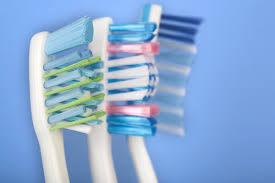
Flossing
Use a little over a ruler’s length of floss (30-45cm). Wind both ends of the string of floss around your middle fingers and grip it between your thumbs and index fingers (with 2cm between each hand). Gently glide the floss in between the teeth, moving up and down to clean both sides of the adjacent teeth. Be careful not to floss too hard as that will damage your gums.

2. Get Friendly with Your Dentist
Regular checks and cleans with your dentist (once every six months) will definitely improve your oral health overall. Your dentist will also be able to detect any issues early on, including any gum disease you might have, and will advise you on how to treat/manage it. Like all other types of diseases, it is always best to treat it in its early stages, so even if you are unsure, you should speak with your dentist.

3. No Smoke and Mirrors
Smoking is one of the biggest issues with regards to gum disease. It slows down any healing process and speeds up the rate of the disease. It also masks symptoms of gum disease (so a lot of smokers don’t know they are suffering from this disease until it is too late and they need corrective surgery or risk losing their teeth).
An overwhelming majority of people suffering from periodontitis who don’t respond to treatment are smokers, so if you smoke and you are concerned about your periodontitis, your best first step would be to give it up. It’s easy to say but hard to do so please seek professional medical help. Your mouth (and body) will thank you in the long run.
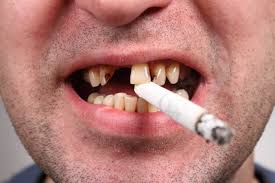
4. Wash Your Mouth!
Therapeutic mouthwashes can help manage (reduce or even prevent) gum disease. When you rinse with mouthwash, it also helps dislodge any large food particles caught between your teeth. Of course, this is no substitute for a thorough brushing or flossing but it does definitely help.

5. Eating Right for Gums’ Delight!
It goes without saying that what you put into your mouth will affect the health of your mouth. Eating surgary foods can be a real problem for your oral hygiene as sugar feeds the bad bacteria in your teeth, leading to tooth decay and gum disease. You should especially avoid any lollies that are sticky, chewy, hard, or sour.

If you do eat any sweets, drink some water. Water is one of your most powerful allies when it comes to sugar consumption. Water neutralises the acidic content in confectionary and sugary beverages. If you drink water consistently throughout the day (or at least swish the water around in your mouth after sugar consumption), it will give the sugar in your mouth a lot less time to stick to your teeth. Hence, this will reduce the possibility of cavities and gum disease.

